Guest Post by Hillary Feerick and Jeff Hillenbrand
As parents, we want what is best for our children. We take the role of protecting them very seriously, and we would never intentionally harm them. We read to them at bedtime, provide them with the best education, insist that they wear their seatbelts, but when it comes to food, somehow many of us falter. In this country, however, we have failed so significantly to nourish our children that the CDC (Centers for Disease Control and Prevention) has predicted that this is the first generation of children that may NOT outlive their parents. The latest scientific research has shown that the foods our children eat in the first 10 years of their lives has a critical and profound effect on their lifelong health, but we have not fully comprehended the gravity of these findings. As a result, the number of obese and overweight children has tripled in the last thirty years, and the number of cases of type 2 diabetes (a disease once called “adult onset diabetes” and linked to high sugar intake) has increased at an alarming rate. And the list of frightening statistics goes on: The results reported by the 1992 Bogalusa Heart Study confirmed that most children and teenagers already had significant plaque buildup in their arteries (a precursor to heart disease). American children consume less than 2% of their diet from fruits and vegetables. About 25% of toddlers between ages one and two eat no fruits and vegetables at all. By the time American children are 15 months old, French fries have become their most commonly consumed vegetable. They move into adulthood eating 90% of their calories from dairy products, white flour, sugar, and oil.
While we have educated our children about the dangers of smoking cigarettes and the use of recreational drugs, we just don’t realize how damaging eating foods on the kids’ menu really is. In fact, The World Health Organization (WHO) has recently stated that more people die today from eating a diet full of junk and processed foods than from cigarette and illegal drug use combined. We wouldn’t allow our children to sit at the table, smoking cigarettes and drinking whisky, but we don’t think twice about regularly giving them candy, soda, fries and cheeseburgers, foods that are shockingly more harmful. Although we would never mean to do anything to hurt our children, every day we are unknowingly causing significant harm.
This heavy emphasis on candy, junk food, and other forms of junk foods does not help our children reach their potential. In fact, a recent study published in The Journal of Epidemiology and Community Health suggests that it limits their brain development. The study followed the dietary patterns of nearly 4,000 children from birth for over eight years and found that toddlers who ate a nutrient-rich diet full of fruits and vegetables had higher IQ scores when they reached 8 years of age compared to the toddlers who consumed processed foods full of fat and sugar.
In response to the current health crisis in America, many counties and states have written laws that prohibit parents and teachers from serving foods or beverages whose first ingredient is sugar. (Please see attached example of New Jersey's policy.) Some states, school boards, and individual schools have implemented additional limits on trans fats and prohibit candy and sugared beverages in any form. The Broward County Schools Wellness Policy (the county in which we live and our children attend elementary school) states that “Schools shall encourage fundraisers that promote positive health habits such as the sale of non-food and nutritious food items as well as fundraising to support physical activities.” Michelle Obama has launched the Let’s Move Campaign to get kids exercising and making healthier choices.
These are all steps in the right direction. However, as parents of a first-grader and a Kindergartener, we know first-hand how difficult it really is to raise healthy kids in a fast-food and junk-food filled world. Adults know that good nutrition fosters academic and athletic performance, but getting children to understand the importance of a healthy diet can be a daunting task. Children need fun and entertaining ways to learn about healthy eating. Many parents recognize the problem but find it difficult to implement change. Frustrated by the lack of a healthy, smart, cool role model for our 5 and 6 years old children, we created a super hero who gains powers from fruits and vegetables: Mitch Spinach. When children read about his adventures, THEY ask YOU for fruits and vegetables. The subtlety of fiction enables children to learn without even realizing that they are learning.
In the first book in the series, The Secret Life of Mitch Spinach:
Mitch Spinach seems to be an ordinary kid, but his classmates have begun to suspect something. The notes in his custom-made, temperature-controlled Nutripak-lunchbox appear to have been written in code. While other kids eat their usual chicken fingers and pepperoni pizza, Mitch Spinach mixes up his meal in a battery-powered blender before their curious and envious eyes. Although he is the smartest, nicest, strongest kid in Ms. Radicchio’s class, he often misses recess when he is called to Principal Lycopene’s office. The truth is that his high- powered fruit and vegetable smoothies give him special powers, such as super-sonic hearing and amazing night vision, which help him tackle problems and solve mysteries at Sunchoke Elementary.
While many books focus on a child’s dislike of a certain food (usually a vegetable), this book series is devoid of that type of negativity and instead transforms healthy eating into a behavior to be copied in order to gain “super” powers like those of Mitch Spinach. The Mitch Spinach children’s book series has the power to significantly change the way that children eat because it actually prompts children to ask for healthy food without preaching to them about the benefits of a healthy diet.
The Mitch Spinach website features creative, multidisciplinary lesson plans and outlines the importance of sound nutrition. Kids can print educational games, such as crossword puzzles and word searches that pertain to the healthy foods used in the books to reinforce what they have learned.
A new resource to help you in your quest to adopt a healthy lifestyle as a family, the Mitch Spinach book series can make your transition even easier. When kids start asking their parents for broccoli, carrots, or flax seeds because they want to be like Mitch Spinach, your own healthy choices will seem effortless and fun!
To get kids on the right track with healthy eating, order your copy of The Secret Life of Mitch Spinach and the brand new Mitch Spinach and the Smell of Victory by visiting the website.
Stay tuned for Part II: 10 Secrets to Get Your Kids to Eat More Fruits and Veggies
Editor's Note: A big thank you to the authors for addressing such a timely issue, and working to fix the problem by creating a tool for parents (and teachers) to use to encourage kids to eat their fruits and vegetables. I highly recommend this wonderful book. Check out my review on Vegbooks. Here is a printable memory card game that features fruits and vegetables.
Hillary Feerick and Jeff Hillenbrand have been married for 15 years and have two young children, a girl and a boy. Months before their first child was born, they began to delve more deeply into infant and maternal nutrition. Compelled by the difficulties of raising healthy children in a fast-paced, junk-food-filled world, they decided to combine their expertise in health (Jeff holds a BS in exercise science) and writing (Hillary holds a BA and MA in English and is an English teacher) to create Mitch Spinach, a healthy role model for children.

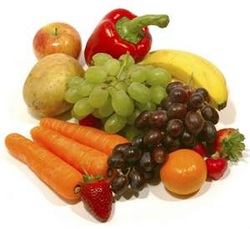
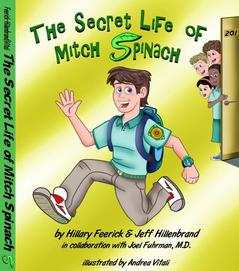
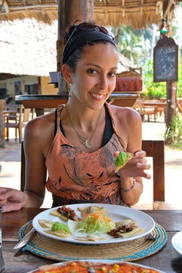
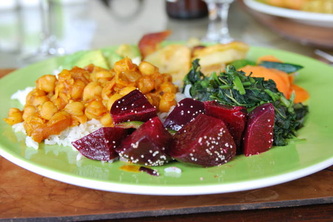
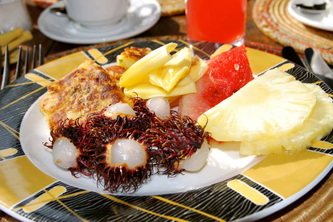
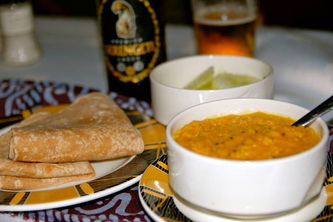
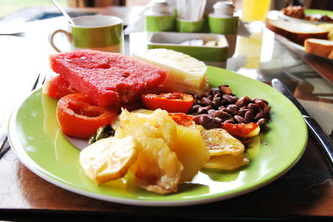

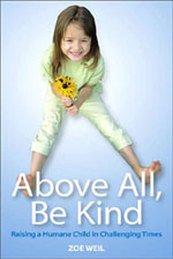

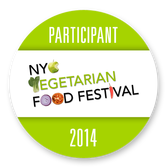

 RSS Feed
RSS Feed
